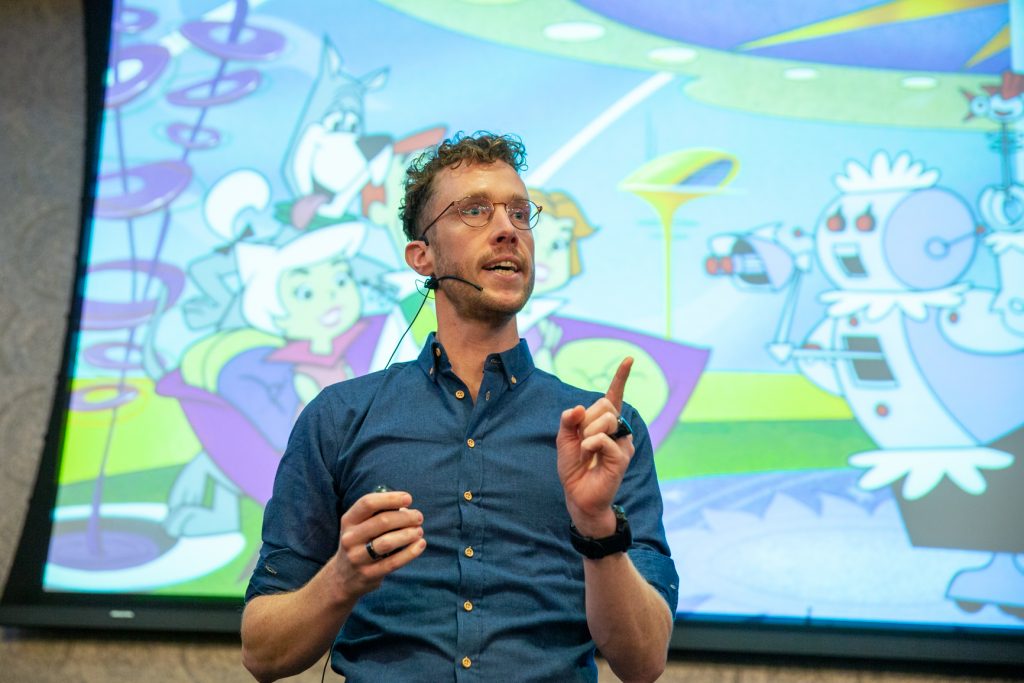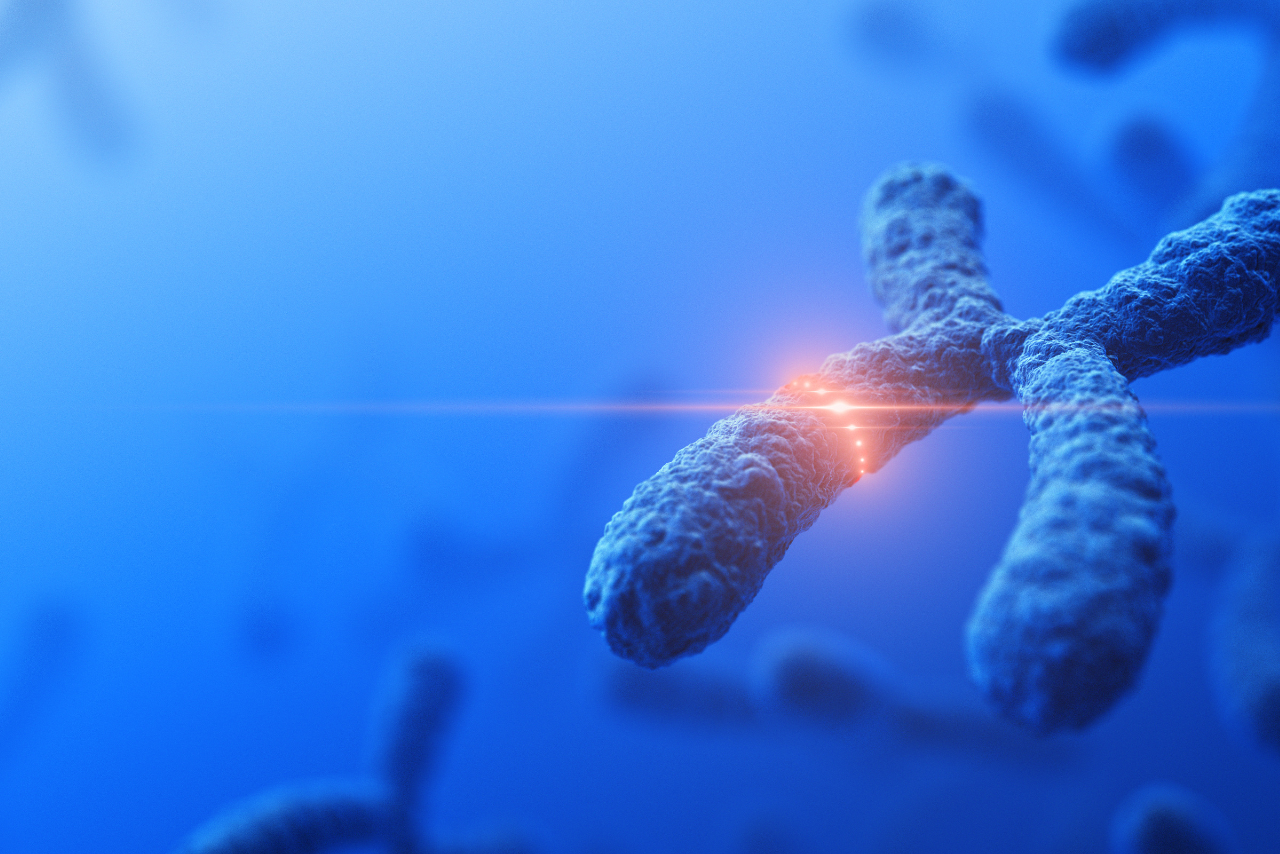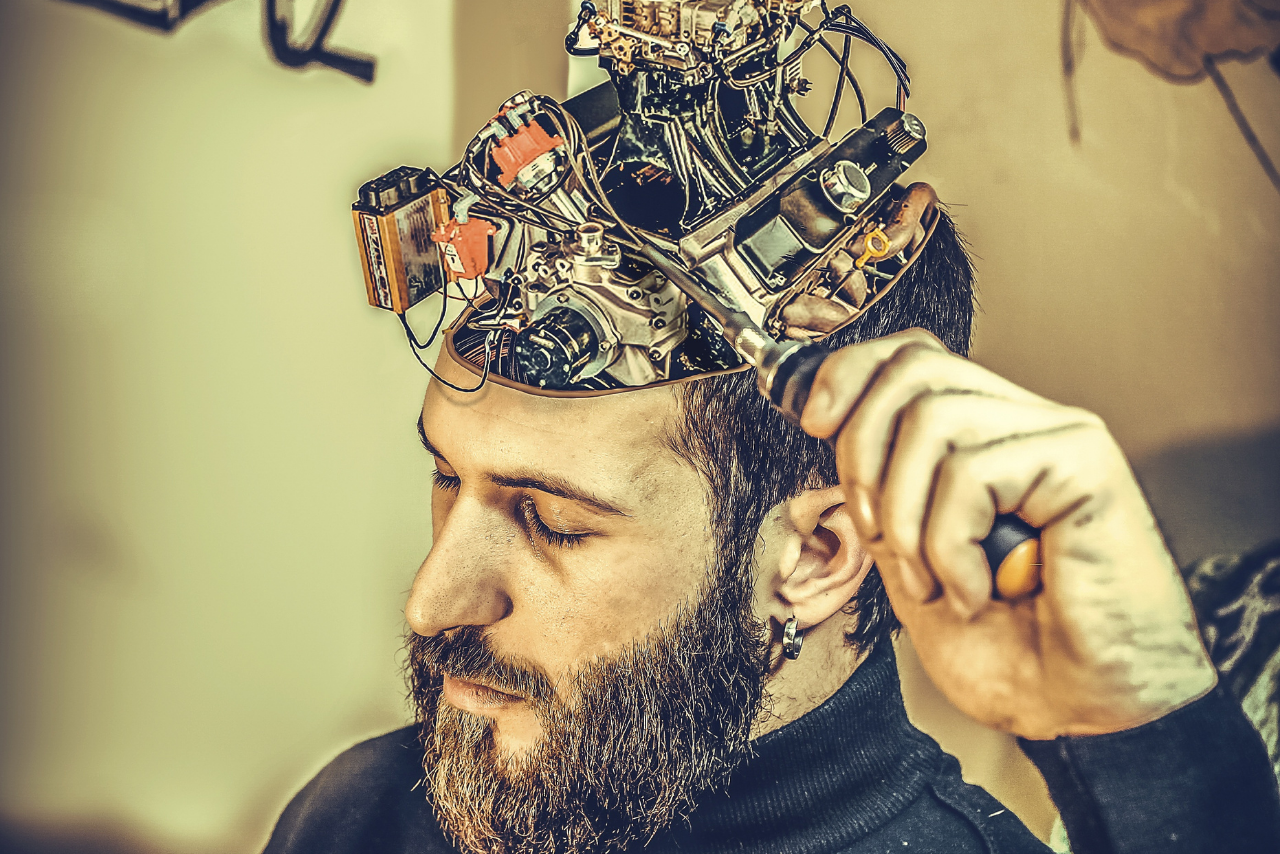Human Enhancement Drugs. Definition and examples of performance and cognition Enhancing Drugs. Incl. 4 categories, risks & impact!
Drugs for human enhancement
Modifying your physical capabilities or enhancing your mood using pharmaceuticals no longer carries the social stigma that it used to. As scientist John Hoberman points out, we live in an era of ‘lifestyle medicine’, in which people feel empowered to change important aspects of themselves to better match their potential [link at the bottom].
According to him, this does not just apply to pharmaceuticals, such as hormones and steroids, but also to plastic surgery, diets, body-building, sexual improvements and anti-aging techniques.
By the way, I have written an extensive article about human enhancement, and also about technologies (like genetic modification), ethics, and movies.
Video: enhancement pharmaceuticals
I made a video about pharmaceuticals for enhancement and performance boosting on my YouTube channel. It is a summary of this article. Watch the video:
Examples drugs for enhancement
Pharmaceutical drugs can be divided into a number of categories:
- Physical;
- Emotional;
- Anti-aging;
- Cognition (nootropics), also about the possible downsides and other methods to boost your cognition.
I will elaborate on the categories with examples. Extra: my favorite nootropics and additional resources, like interviews, and a reading list with links.
What are examples of pharmaceuticals for physical enhancement?
1 Physical impact
A few examples of enhancing one’s physical performance are muscle growth (steroids), length (human growth factor), losing weight (Xenical), hair growth (Propecia), anti-wrinkle products (Q10), stamina (EPO) and sexual performance (Viagra).
The enhancement of physical traits and capabilities is a very visible topic of discussion in the sports domain, especially with regards to doping. Professional athletes have gotten caught using substances they weren’t allowed to use on quite a regular basis. Take the use of steroids by baseball players, for instance, or the use of synthetic EPO by cyclists [link below].
The downside to Viagra
Using substances to enhance your physical capabilities can also have unintended side effects. Take improving your sexual performance with Viagra, for instance. In 1998, columnist Ann Landers published a letter from a group of elderly women in California who called themselves the “Senior Señoras of Sonoma”.
Some even said that they had hoped to finally be done with it
Senior Señoras of Sonoma
“The weren’t happy with the drug at all. They had reconciled themselves with the life they had and the natural deterioration of their husbands’ potency. Some even said that they had hoped to finally be done with it.” In other words: no modification or enhancement is or remains purely physical.
Another consequence of Viagra: the group among which the number of sexually transmitted diseases (STDs) has risen the most, is that of elderly men between 50 and 70 [link at the bottom]. According to sewage analyses carried out by the Dutch National Institute for Public Health and the Environment in 2017, more than 150,000 men use Viagra in the Netherlands, while only 43,000 have a prescription for it.

What are examples of pharmaceuticals for emotional adjustments?
2 Emotional impact
Antidepressants such as Prozac, Paxil and Wellbutrin work by altering a patient’s mood and state of mind. As with the other types of pharmaceutical interventions, they are also frequently used by people who don’t have a doctor’s prescription [link at the bottom]. In this case, we’re talking about healthy people who use the drugs to feel even better, even more cheerful and even happier.
In his book Beyond Therapy, bioethicist Leon Kass is critical: ‘We want to perform better in life. But not by becoming bionic people and surrendering to meticulous chemical interventions. That’s not human.’
We want to perform better in life. But not by becoming bionic people and surrendering to meticulous chemical interventions. That’s not human.
Leon Kass (bio-ethicist)
In a way, this also evokes the image of Soma, the drug from the book Brave New World by Aldous Huxley [link at the bottom]. In this dystopian book, people assert that they are happy and fulfilled – but apart from chemical substances, there is nothing in their lives that actually generates their happiness and sense of fulfillment. Their relationships are superficial, their thoughts and feelings are conditioned, and their work is routine and standardized.
But a novel is always more likely to explore the extremes. And helping and treating people who suffer from depression, anxiety disorders and/or other mental disorders is now quite commonly accepted. Why shouldn’t pharmaceutical means be allowed, to help you feel even better? So that you could enjoy even more valuable relationships, accomplish tasks that bring more satisfaction, or go through life with more creativity and imagination?

What are examples of pharmaceuticals to increase longevity?
3 Anti-aging
The last category within this section on pharmaceuticals, has to do with slowing down aging processes. This is also known as ‘anti-aging’, a topic about which I’ve previously written an extensive article. I also talked to Andrea Maier about this subject in a podcast interview. Andrea is working on an anti-aging pill which, according to her, will easily enable humans to live to be 130 years old.
This particular pill should be able to rid the body of aging cells, also referred to as ‘senescent’ cells. These cells are responsible for many of the diseases that go hand in hand with aging, ranging from cardiovascular diseases to dementia. I also talked about the development of this type of medicine with Peter de Keizer (UMC Utrecht), Aubrey de Grey (SENS Foundation) en Kris Verburgh (author and researcher).
At the moment, the most promising pharmaceuticals are rapamycine, metformin and NAD+. In an experiment with mice, rapamycine increased their life duration by 60%. Metformin appears to improve the production of oxygen in the cells. And lastly, a team of Harvard scientists provided older mice with NAD+ molecules, which led them to look younger and live longer. All of these pharmaceuticals are currently going through different research phases, in which the effects on humans are also being tested and researched.

What are examples of pharmaceuticals for cognitive enhancement?
4 Cognitive pills
Another type of pharmaceutical substances that is quickly gaining popularity, is cognitive pills. These can be used to improve your concentration skills, memory or creativity. Cognitive pills are also referred to as nootropics, smart drugs, brain boosters, brain pills or brain supplements.
The definition of nootropic is that it is a drug, herb or hormone that improves cognitive functions. Another term is ‘smart drugs’. The difference with nootropics is that smart drugs can have (unwanted) side effects. Think cocaine. That is a smart drug, because you get a lot of focus and concentration, but you can also become addicted to it. That does not apply to nootropics.
Nootropics
How do nootropics work? Because there is such a wide variety of products, there is no standard description of how they work. You get more focus, a better memory or a different effect through the action of nootropics on enzymes, hormones and neurotransmitters in your brain.
- My favorite nootropics: top 3
Healthcare sector
So, what are the origins of these kinds of supplements?
In 2018, I participated in a ten-volume podcast series by BNR and the Dutch Financial Times, entitled Bionic Man. One of the insights I gained was that most of the tools and methods that we use to enhance ourselves, were initially developed to help patients with medical issues.
Only later did it become clear that healthy people can also use these drugs to enhance themselves. This also applies to cognitive pills, which were originally created to help patients with narcolepsy (Modafinil), restlessness or issues with their attention span (Ritalin and Adderall).
Microdosing LSD
The healthcare sector is not the only field where pharmaceutical enhancements are discovered and developed. I’ve personally experimented with microdosing LSD.
LSD is a synthetic drug, but microdosing can also done with other drugs, such as magic mushrooms. According to fervent advocates of this method, taking a very small dose of LSD once every three days leads to improved concentration and more creativity.
I personally found the effect difficult to distinguish, and a journalist from Dutch daily de Volkskrant, who had a similar experience, also underlines this [link at the bottom]. That’s why I prefer to stick to other nootropics, which have a faster and more direct impact in those moments that I need a boost.
Fiction
Cognitive pills fascinate and entice us. It’s no surprise that these pills and their mystique are often featured in movies, of which the best known examples are Limitless (2011) and Lucy (2014).
Limitless features Bradley Cooper playing the main character and Robert de Niro in a supporting role. In Lucy, the main character is played by Scarlett Johansson, with a supporting role by Morgan Freeman. Both movies have a similar premise: a pill or substance allows the characters to make use of their entire brain capacity. In Limitless it’s the NTZ-48 pill and in Lucy it’s the drug CPH4 that makes this possible.
What can be downsides of nootropics?
Downsides
What are the downsides of using pharmaceutical drugs to improve your cognition? At first sight, there doesn’t seem to be much of an issue there. Who wouldn’t want to improve their memory? However, there are a few downsides that I would like to point out:
- dependence
- social norm
- forgetting
Dependence
It requires (self-)discipline not to get used to using the supplements, or to get addicted to them. Apart from forms of mental dependence, it is also possible to become physically dependent on these drugs. In an article published on The Fix, a mother talks about her son who suffered from insomnia, depression and anxiety [link at the bottom].
It turned out that his nootropics contained the substance Tianaptine. Tianaptine attaches itself to the same receptors in the brain that react to morphine and other painkillers. After overexposure to this substance at a very high dosage, you can become physically dependent on (addicted to) it.
Social norm
What if taking these drugs becomes the societal norm? Will you still have the freedom of choice not to take them? This remark does not just apply to pharmaceuticals. For example, one in four students now appears to be using Ritalin [link at the bottom].
Will you still be able to keep up with the academic performance of your fellow students if you decide not to take these drugs? What kind of consequences could this have?
Forgetting
During a lecture I gave on human enhancement, someone in the audience pointed out to me that forgetting also has its function. Selectively forgetting things, whether consciously or not, ensures that you keep trying new things and remain receptive to new ideas.
Moreover, the human memory is complex and not like that of a computer: when you expand your computer’s hard disk, it immediately has more memory. When it comes to the human brain, it’s also about the pace at which you can filter information from your memory, the way in which you assess what is important, and which part of a memory you remember most vividly.
Documentary Take your pills
A worthwhile documentary on Netflix about human enhancement drugs is Take your pills. The topic is the usage of drugs like adderral and ritalin in the United States.
Watch the trailer:
What are other methods to boost your cognition?
Other methods
I spoke with Jesse Lawler at the Biohacker Summit 2016. He is the host of the podcast Smart Drugs Smart. He told me about some natural brain supplements you can use:
- Energy
- Coffee naps
- Mood
- Focus
- Creativity
1. Energy
Start the day with exercise. Whether it is yoga, running or walking. Jesse: ‘A fit body is a fit brain.’ He also starts the day with green tea. Green tea contains L-theanine. A cup of tea contains approximately 8-20 mg theanine. L-theanine provides a relaxed feeling with focus.
2. Coffee naps
Coffee naps. Do you need energy during the day? Then take a coffee nap. This is how it works: You drink a cup of coffee and then you go to sleep for 20 minutes. The moment you wake up, the caffeine reaches the adenosine receptors, so you immediately feel a lot of energy.
3. Mood
Jesse has 2 tips to improve your mood without using nootropics or supplements. His number 1 tip is to put on your favorite music. His 2nd tip is to smell lemon balm (?). This fragrance has a mood-enhancing effect.
4. Focus
To get focus, you have to take action and move. You don’t get focus by thinking about what you are going to do, but by working correctly. The same goes for movement. Make sure you walk a bit every hour.
My own routine is that I work with a Pomodoro timer. After 50 minutes of work, I’m going to do something else for 10 minutes. Sometimes I do things around the house (like hanging up the laundry or putting in the dishwasher) and sometimes I do pull-ups, push-ups or go for a walk.
5. Creativity
Do you have a busy day when you have to do things with your memory as well as be creative? Jesse’s tip is to do the thinking during the day. When you are tired, you are cognitively better at creative things than at working with your memory. Another tip: if you want to be creative, you shouldn’t multitask. Stick to the one task you have.
Still curious? I tested a couple of nootropics myself!
My favorites
I also like to use these brands of nootropics:
- A. Mindscopic
- B. Natural Stacks
- C. Modafinil
A. Mindscopic
The nootropic by Mindscopic contains Forskolin (for more focus and motivation), Bacopa Monnieri (for improved memory), artichoke extract (for more focus and better long-term memory), and L-theanine (provides relaxation as a counterpart to all those other neurotransmitter-promoting substances such as caffeine).
- Forskolin. Forskolin is an extract from a plant from India. There it has been used for all kinds of medicines for years. Forskolin helps improve your memory and learning by stimulating cyclic adenosine monophosphate (cAMP) in the brain.
- Bacopa Monnieri. This is an extract of a water plant from India. The main effect of Bacopa Monnieri is that it leads to improved memory and less stress. Scientists indicate that the effect only occurs after 4 weeks, when you have to take it with fat. The latter is to allow the components to be better absorbed by the brain.
- Artichokes extract. The Forskolin is often combined with artichoke extract, just like with Ciltep (number # 4). This extract helps to make the cAMP more available for absorption by your brain.
- L-theanine is an amino acid that has an effect on your cognitive abilities and your relaxation level. For that reason, it is sometimes advised to drink green tea before going to sleep. L-theanine is often combined with caffeine. The l-theanine dampens the stress that caffeine can cause.
My experience with Mindscopic is that it works well. In terms of effect, I think it is quite similar to Ciltep by Natural Stacks. It really is a ‘boost’ for my focus and concentration.
I mainly use it on days when I really need it. So I don’t take it every day. A (small) disadvantage of Omnimind is that you have to take 3 pills in the morning on an empty stomach. Sometimes I don’t get something right through my throat in the morning, but luckily the pills aren’t that big. After 10 to 20 minutes it starts to work for me. If I then turn on a nice playlist on Spotify, I immediately get into flow with a lot of focus. It is wonderful to work then!
B. Natural Stacks
There are two types of nootropics I tried from the brand Natural Stacks: smart caffeine and Ciltep.
Smart caffeine
Smart caffeine is a nootropic with two basic ingredients: l-theanine and caffeine. L-theanine can also be found in green tea. The second ingredient is caffeine. Because caffeine is in its pure form in the supplement, you seem to be able to increase your alertness and concentration.
When should you take smart caffeine? According to the manufacturer, you can take 1 or 2 pills whenever you find it necessary. Because caffeine does have an impact on your night’s sleep, they recommend not taking the pills in the evening.
What do I notice myself? I started on one pill in the morning just before I started working. I really felt an energy and focus boost. I felt like I could work twice as fast and as well. Or is that a placebo effect?
Ciltep
Ciltip is also made by Natural Stacks. This supplement contains artichoke extract, forskolin and amino acids. Artichoke extract? Yes, the artichoke extract in this supplement contains 900 milligrams of luteolin. Luteolin appears to counteract inflammation in your brain.
Forskolin is an herb similar to mint. In addition to being good for your brain, it is also used in supplements to lose weight and boost your testosterone production.
The manufacturer recommends taking 2 to 3 capsules right after you wake up, so before breakfast. It works really well for me.
Compared to Smart Caffeine I have the idea that Ciltip gives more the steady flow for my brain. Smart Caffeine is the turbo that I can turn on when I need it. In addition, Ciltep helps me to think in a more structured way. That’s why I especially take it when I have to write a big article.
3. Modafinil
Even before I actually knew the term nootropics, I had already heard of Modafinil. At first, I was a bit apprehensive about it. It was initially developed as a remedy for excessive sleepiness, such as narcolepsy. The website of the Dutch distributor states that the drug also appeared to help with memory, alertness and concentration in test subjects.
Of all the remedies I have tested, I found this one the most intense. Fortunately, they are aware of this and recommend starting with half a pill and not directly combining it with coffee. I had to prepare a number of lectures, a task that requires quite a lot of my cognitive abilities. With the Modafinil, I really went like the fire brigade. In addition to alertness and concentration, I also had more mental energy.
Due to its intensity, they do not recommend taking it daily. Something that I can certainly agree with!
These are extra resources
Extra resources
These are some extra resources, both fiction and non-fiction, about this topic.
- My interview with Anthony DiClementi about supplements;
- Movie Dune.
I interviewed Anthony DiClementi (Biohacking Secrets) at the Biohacker Summit 2017 in Helsinki (Finland) about the usage of supplements, which you can consider a sort of primitive form of human enhancement drugs.
Watch the interview:
The movie Dune is about about a spice for longevity and consciousness expansion.
Watch the trailer:
Hire me!
Do you want to know more about human enhancement?
Please contact me if you have any questions! Like if you want to invite me to give a lecture, presentation or webinar at your company, at your congress, symposium or meeting.
Or if you want to book a session with me as an expert consultant on this area.

Reading list
I previously wrote these related articles about human enhancement:
- What is human enhancement?
- What are human enhancement technologies?
- What is human genetic enhancement?
- What is human enhancement research?
- What are the ethics of human enhancement?
These are related articles:
- What is anti-aging?
- How can you live longer?
- What is technology ethics?
These are external links that I have used:
- Article about the use of steroids in sports
- Article STDs in the elderly
- Article disadvantages nootropics
- Article use of antidepressants
- Metformin research
- Research into rapamycin
What do you think about human enhancement drugs? Leave a comment!







Leave A Comment